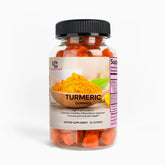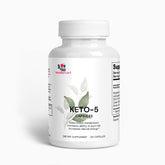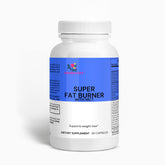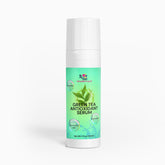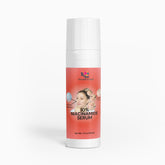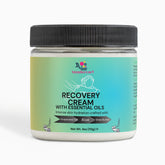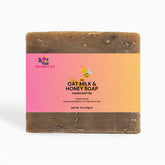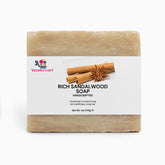When Should You Start Taking Collagen? A Guide For Every Age
Many people worry about keeping their skin, joints, and hair healthy, no matter their age. A key protein helps with these health aspects.
Collagen production drops around age 25. This makes taking supplements a good choice for staying healthy and full of energy.
Knowing when to start collagen dietary supplements is important. It doesn't matter if you're in your 20s or older. Starting at the right time can really help.
Key Takeaways
- Collagen production starts to decline around age 25.
- Supplementation can support skin elasticity and joint health.
- It's never too early or too late to start taking collagen supplements.
- Good collagen supplements can benefit overall health and vitality.
- Consulting a healthcare professional before starting any supplement regimen is recommended.
The Science of Collagen: Essential Protein for Youthful Vitality
Collagen is the most common protein in our bodies. It's key for many bodily functions. It makes up about 25% to 35% of all proteins in us.
What Is Collagen and Its Role in the Body
Collagen gives strength, elasticity, and structure to parts like skin, bones, tendons, and ligaments. Its unique structure makes it strong. This is why it's important for keeping these tissues intact.
The Four Main Types of Collagen and Their Functions
There are four main types of collagen, each with its own role:
- Type I: Found in skin, tendons, and bones, providing structural support.
- Type II: Primarily located in cartilage, it supports joint health.
- Type III: Supports blood vessels and muscles.
- Type IV: Forms bases of cell basement membrane.
Recent Research on Collagen Benefits
Recent studies show hydrolyzed collagen peptides are good for hair, skin, and joint health. Taking collagen powder can make skin more elastic and reduce wrinkles. It also helps with joint mobility. Plus, it can improve bone density and hair growth.
Collagen is vital for staying young and healthy. Knowing about its science helps us make better health choices.
Why Collagen Production Declines with Age
Aging leads to less collagen production, starting in our mid-twenties. This happens to everyone, no matter their lifestyle or genes.
The Natural Aging Process Starting at Age 25
By age 25, our bodies start making less collagen. This drop-off gets worse over time, affecting our skin, joints, and energy. Collagen gummies and other supplements can fight this decline.
Environmental Factors That Accelerate Collagen Loss
UV rays, smoking, and pollution also hurt collagen levels. It's important to shield your skin from these to keep collagen healthy.
Visible Signs of Collagen Depletion
When collagen drops, we see wrinkles, sagging skin, and joint pain. Using best collagen gummies for skin elasticity or collagen powder for joint pain relief can help. They support collagen health
Knowing why collagen drops is key to keeping it healthy as we age. A good lifestyle and supplements can help support collagen levels.
Collagen Supplements: The Latest Research and Benefits
Recent studies have shown that collagen supplements can improve skin, joints, and bones. They help with skin elasticity, joint mobility, and bone density. This makes collagen supplements a key part of staying healthy and feeling good.
Skin Health and Reduced Wrinkle Formation
Collagen supplements can make your skin more hydrated and elastic. This reduces fine lines and wrinkles. A study in the Journal of Medicinal Food found that collagen supplements improved skin elasticity more than a placebo.
Joint Mobility and Cartilage Support
Collagen supplements also help with joint health. They can reduce joint pain and improve mobility. This is great for people with osteoarthritis, as collagen keeps cartilage healthy.
Bone Strength and Density Improvement
Collagen supplements may also strengthen bones. This can lower the risk of osteoporosis and fractures. A study in Nutrients found that collagen peptides increased bone density in postmenopausal women.
Hair Growth and Nail Strength Enhancement
Collagen supplements also benefit hair and nails. They promote healthy connective tissue, which is key for hair and nail health. This leads to better hair growth and stronger nails.
When picking a collagen supplement, look at the source and type. Marine collagen and bovine collagen are popular choices. Marine collagen is highly bioavailable, while bovine collagen has a full amino acid profile. The best supplement is high quality and hydrolyzed for better absorption.
Starting Collagen in Your20s: Prevention and Maintenance
Starting collagen supplements in your 20s can help keep your skin and joints healthy. It might seem early to think about anti-aging, but this decade is key for long-term health.
Building a Foundation for Long-Term Skin Health
In your 20s, your skin still has lots of collagen. But, environmental factors and lifestyle choices can harm it. Taking collagen early can fight these effects, keeping your skin elastic and lines less visible.
Supporting Active Lifestyles and Joint Function
Many 20 somethings are active, whether through sports, exercise, or work. Collagen supplements can keep your joints healthy and moving well. This might lower the chance of joint problems later.
Recommended Product: Collagen Gummies with Vitamin C
For 20 somethings Collagen Gummies with Vitamin C are a great pick. They mix collagen's benefits with Vitamin C's antioxidant power. This supports your skin and immune system.
Dosage and Usage Guidelines
Take one to two gummies a day, with or without food. Being consistent is important to see the benefits.
Expected Benefits for 20-Somethings
Users might notice better skin hydration and elasticity. They also get joint health support. Vitamin C adds antioxidant benefits, too.
| Benefit | Description |
| Skin Health | Improved hydration and elasticity |
| Joint Support | Enhanced mobility and reduced discomfort |
| Antioxidant Support | Vitamin C provides additional antioxidant benefits |
Collagen Needs in Your30s: Combating Early Signs of Aging
In your 30s, your body starts making less collagen. This can make your skin look dull and your joints less flexible. It's a key time to act to keep your skin and body healthy.
Addressing Skin Dullness and Fine Lines
Skin dullness and fine lines show up early in your 30s. Using a good collagen supplement daily can help. These supplements give your skin the amino acids it needs to stay elastic and hydrated.
Supporting Metabolism and Recovery
Collagen is important for your metabolism and recovery, if you're active. Collagen powder is easy to use and helps keep your joints and muscles healthy.
Recommended Product: Hair, Skin & Nails Essentials
For all-around support, try Hair, Skin & Nails Essentials. It has collagen and other nutrients to boost your beauty and health.
Optimal Timing and Application
For best results, take collagen supplements in the morning or before bed. Being consistent is crucial to see the benefits.
Complementary Lifestyle Factors
Along with collagen, eating well, drinking plenty of water, and protecting your skin from the sun can help fight aging.
| Lifestyle Factor | Benefit |
| Balanced Diet | Provides essential nutrients for skin health |
| Hydration | Maintains skin hydration and elasticity |
| UV Protection | Prevents premature aging caused by sun exposure |
Intensifying Your Collagen Strategy in Your40s
In your 40s, collagen production slows down. This affects your skin and joints. It's important to support your skin and joints at this time.
Targeting Deeper Skin Layers and Structure
By your 40s, skin issues get worse. Deeper layers and structure are affected. Using Hydrolyzed Collagen Peptides can help. They are absorbed well by the body, improving skin elasticity and firmness.
Supporting Joint Comfort and Mobility
Joints need attention in your 40s. Hydrolyzed collagen peptides for hair skin joints can help. They support cartilage and reduce inflammation, improving mobility and reducing pain.
Recommended Product: Hydrolyzed Collagen Peptides Powder
Hydrolyzed Collagen Peptides Powder is a great choice for your 40s. It's effective and easy to use in your daily routine.
Incorporation into Daily Routine
To use Hydrolyzed Collagen Peptides Powder, mix it with your favorite drink or meal. Consistency is key.
Synergistic Nutrients for Enhanced Results
For better results, add nutrients like Vitamin C and Omega-3 fatty acids. They work well with collagen, enhancing its benefits.
Benefits of a strong collagen strategy in your 40s include:
- Improved skin elasticity and firmness
- Enhanced joint comfort and mobility
- Support for hair and nail health

Comprehensive Collagen Support for Ages50+
For those aged 50+, a multi-faceted approach to collagen supplementation is essential. As we age, our bodies undergo various changes that affect collagen production and overall health.
Internal and External Supplementation Approaches
A comprehensive collagen support strategy for individuals over 50 should include both internal and external supplementation methods. Internally, collagen supplements can help boost the body's collagen production, while external applications can directly target areas of concern such as skin and joints.
Addressing Age-Specific Collagen Needs
At 50+, individuals face unique challenges related to collagen depletion, including decreased skin elasticity, joint discomfort, and reduced bone density. Top collagen supplements can help address these issues by providing essential amino acids and nutrients.
Recommended Products: Powder + Sleep Plus Collagen Cream
For optimal results, consider combining a collagen powder supplement with a topical collagen cream, such as Sleep Plus Collagen Cream. This dual approach can help support both internal collagen production and external skin health.
Creating an Effective Collagen Routine
To maximize the benefits of collagen supplementation, it's essential to establish a consistent routine. This may involve taking a collagen supplement daily, applying topical collagen products as needed, and maintaining a healthy lifestyle.
Measuring Results and Adjusting Protocols
Regularly assess the effectiveness of your collagen routine and make adjustments as necessary. This may involve tracking changes in skin elasticity, joint comfort, or other relevant factors.
| Product | Benefits | Recommended Use |
| Collagen Powder | Boosts internal collagen production, supports joint health | Daily supplementation |
| Sleep Plus Collagen Cream | Enhances skin elasticity, reduces fine lines and wrinkles | Topical application before bed |
Choosing Between Collagen Supplement Formats
Collagen supplements come in many forms, each with its own benefits and drawbacks. Your choice depends on what you like, your lifestyle, and your health goals.
Gummies vs. Powders: Bioavailability and Convenience
Collagen gummies are tasty and easy to take, perfect for those who don't like pills. But, they might have sugars and preservatives. Collagen powders are flexible and can be mixed into drinks, but some find the taste off-putting.
Comparison Table: Collagen Gummies vs. Powders
| Feature | Gummies | Powders |
| Convenience | High | Medium |
| Taste | Pleasant | Variable |
| Bioavailability | Medium | High |
Liquid Collagen: Absorption Benefits
Liquid collagen is easy for your body to absorb because it's already broken down. It's great for those looking for quick results.
Capsules and Tablets: Dosage Precision
Capsules and tablets give you a precise amount of collagen. They're perfect for keeping a regular supplement routine. They're simple and straightforward.
Topical Collagen: Effectiveness for Skin Concerns
Topical collagen products, like creams and serums, target skin issues directly. Their effectiveness can vary, but they're great for your skin care.
Choosing the right collagen supplement is all about what you need and like. Think about convenience, how well your body absorbs it, and what health benefits you want. This will help you make the best choice.
Bovine vs. Marine Collagen: Source Matters
It's important to know the difference between bovine and marine collagen. This choice affects how well it works and if it's right for you.
Understanding Different Collagen Types and Sources
Collagen comes from different places, like cows and fish. Bovine collagen is from cows, usually from their hides and bones. Marine collagen is from fish, often from their scales and skin.
Bovine Collagen: Versatility and Complete Amino Acid Profile
Bovine collagen is versatile and has a full amino acid profile. It has Types I, II, and III collagen. This is good for your skin, joints, and bones. It also helps with overall health and wellness.
- Rich in Types I, II, and III collagen
- Supports skin elasticity and hydration
- Promotes joint health and mobility
Marine Collagen: Bioavailability and Sustainability
Marine collagen is known for being easily absorbed and sustainable. It's full of Type I collagen, which is great for your skin. It's also good for the planet because it comes from fish waste.
- High bioavailability for better absorption
- Rich in Type I collagen for skin health
- Sustainable sourcing from fish waste
Plant-Based Alternatives for Collagen Support
If you don't want animal products, there are plant-based options. These include things like vitamin C, silica, and plant extracts. They help support collagen production.
When picking between bovine, marine collagen, or plant-based options, think about what you need. Talking to a healthcare professional can help find the right collagen for your health goals.
Conclusion: Investing in Lifelong Collagen Health
Keeping collagen levels healthy is key at every life stage. As we age, our collagen production goes down. Taking collagen supplements can slow this natural drop.
Whether you're young or older, adding collagen supplements to your day can boost your health. They help keep your skin, joints, and bones strong.
There are many types of collagen products out there. You can find gummies, powders, liquids, and capsules. This makes it easy to pick the right one for you.
Choosing to care for your collagen health is a smart move. It helps you stay young and active. By picking the right collagen supplements, you're on your way to a healthier, more vibrant life.
FAQ
What are the benefits of taking collagen supplements?
What is the difference between hydrolyzed collagen and collagen peptides?
Are collagen gummies as effective as collagen powder?
Can I take collagen supplements if I'm in my 20s?
What is the recommended dosage for collagen supplements?
How long does it take to see results from collagen supplements?
Are there any side effects associated with collagen supplements?
Can I combine collagen supplements with other nutrients?
What is the difference between bovine and marine collagen?
Are there any plant-based alternatives to collagen supplements?
Featured Products
Turmeric Gummies
- $20.00
$35.00- $20.00
- Unit price
- / per
Keto-5
- $26.00
$40.00- $26.00
- Unit price
- / per
Super Fat Burner with MCT
- $20.00
$38.00- $20.00
- Unit price
- / per
Skin Products
Green Tea Antioxidant Serum
- $25.50
- $25.50
- Unit price
- / per
10% Niacinamide Serum
- $25.00
$35.00- $25.00
- Unit price
- / per
Recovery Cream
- $29.50
$45.00- $29.50
- Unit price
- / per
Oat Milk Honey Soap
- $20.00
- $20.00
- Unit price
- / per
Rich Sandalwood Soap
- $23.00
- $23.00
- Unit price
- / per








